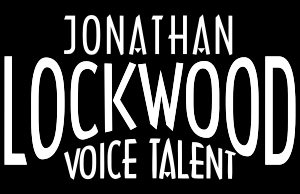Moving Up North
My mother was a sweet woman, but was she ever tough on me when I'd read aloud, as she'd often have me do. She was born in Tennessee and had the typical southern accent. So when she moved to Detroit at 15, she tried really hard to change it. Guess she wanted me to work as hard as she had on speech. "Eee-NUN-cee-ate!" she'd demand. "With FEELING!"
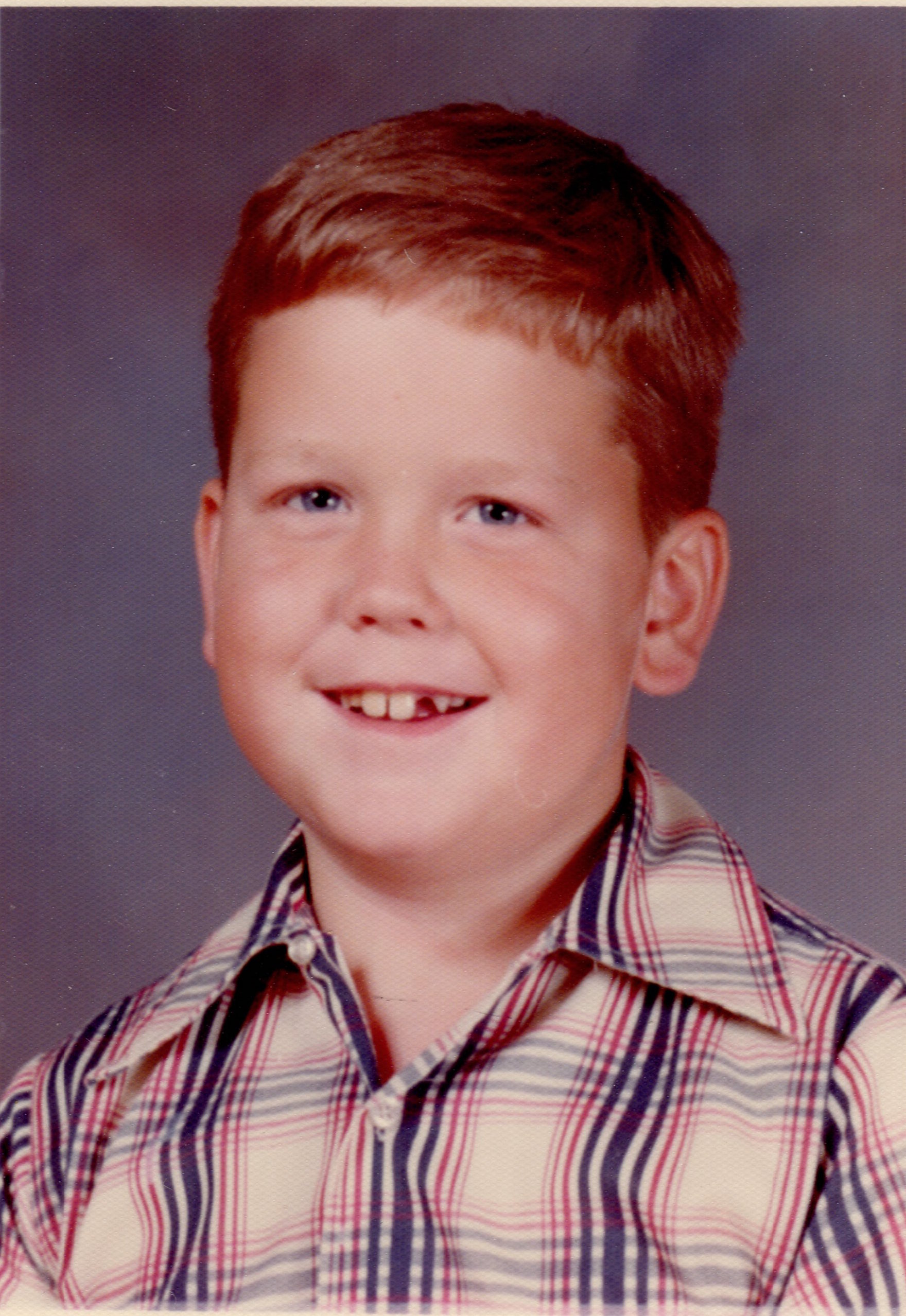
In January of 1974 when I was 7, my parents decided to move from our Detroit suburb of Sterling Heights to Tawas City, a little tourist/farming/hunting/fishing town in northeast Michigan right on Lake Huron. I hated it. I never wanted to move, and this new town was full of weirdos. My classroom seemed like a barn: really high rafters, dimly lit, old. In my old school I was an advanced reader, but here? It seemed like the kids could barely read, and the math seemed incomprehensibly simple.
The bright spot was my young, pretty 2nd Grade teacher, Mrs. Wendy Lavoie. From time to time she would take me to another classroom in the school where I'd sit in front of the class and read. It wasn't until my buddy Jimmers asked where I was going all the time that I realized maybe I was the only one doing this. Once in awhile, during some free time, Mrs. Lavoie would sit with me and have me read for her. I don't know what she said to me, but distinctly recall her making me feel special for my reading. Once, right after such a time, she put on some kind of movie for the class that featured a male narrator. It struck me that the man must have been reading those words, and—no kidding—I thought right there maybe I could become a professional reader like him.
Radio Career
Our local high school was big into Forensic Competition. It's a nationally organized series of speaking and acting tournaments designed to help students become good communicators. And here I need to thank another teacher, my dear friend Mrs. Ann Reasner, for placing such emphasis on this. She actually arranged for the entire school to pretty much shut down for one big Forensics Day. There were lots of categories, but I chose Radio News. Fun. As. Hell. We'd get a lot of teletyped news, sports and weather stuff off the news wire services from local radio stations, take 30 minutes to put together a 4 minute newscast and then deliver it to the judges. I did well at this; well enough at 17 to phone WDBI, a local station, and ask someone how I might get a job there.
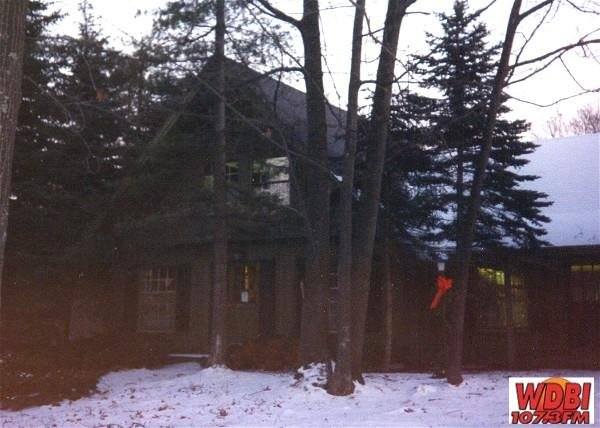
"Make a tape," the guy said. He told me it could feature me reading news, introducing songs and…voicing commercials. So, using my parents' Sears turntable/cassette/tuner combo with a tiny 1/8" plug-in mic, I did it. Did I ever. The thing was over 20 minutes long and even featured me drumming on a Lincoln Log container and singing an original jingle for a local pizza joint. Next thing I knew the station owner called me in for an interview, but it wouldn't be my finest moment.
In my defense it was the very first time I'd ever gotten drunk. On the day of the interview my buddy Jim took me to an older friend's house where we took turns swigging from the guy's booze. You never really forget the first time you over drink lime vodka and sloe gin. Together. Or the way your vision can't tune out the energy waves moving from right to left in the station manager's office, pulling your head with them in rhythmic fashion. I was worried he'd tell me to get lost, but just couldn't be sure he'd picked up on it. Maybe he thought I had a neurological disorder and would take pity on me.
"Well I'm impressed," were his exact words. I was stunned he couldn't tell I was smashed. Shocked he was putting me on the schedule that very weekend. Amazed at how easy it all was. Thus began my career in radio around May of 1983.
Voicing Ads
I would work on-air at a total of 10 radio properties throughout Michigan over the next 15 years, and part of my job was to produce local commercials. I enjoyed this, and pretty soon some of the salespeople were requesting me for their clients' ads. At 19 while working overnights at WIOG in Saginaw, some of the older guys would sincerely compliment me on my voice overs. One said I should try to connect with local ad agencies and production companies to be considered for actual, paid voice work. I was both excited and clueless as to how to approach this.
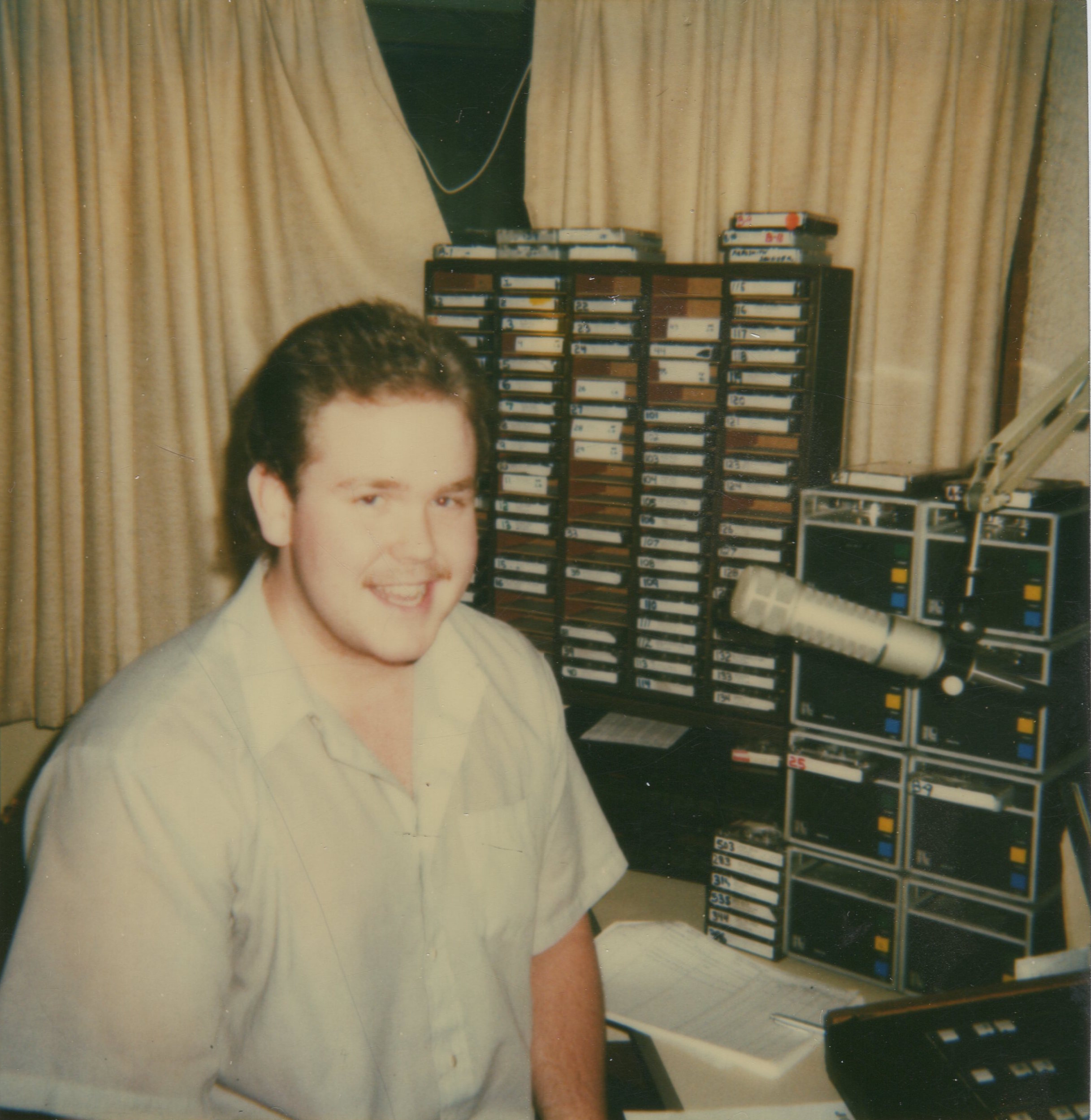
Plus I was geeked about my radio career, the station parties I was going to and drinking at even though I was under 21. The girls. Working overnights meant sleeping during the day when most people were doing business or networking, and I just wasn't doing any of that. So when the call woke me up about 9 o'clock one morning, and the voice on the other end was a super thick Italian accent, I was absolutely convinced it was a high school friend messing with me.
"Hallo, eez thees-uh Jonnaton Loke-wuud-uh?"
I was pissed my buddy kept waking me up when I was trying to sleep, so I replied with a loud, exaggerated Italian accent myself…
"UHHH, yayce, thees-uh eez Jonnaton Loke-wuuuuuuuud-uh! Whoo eez theeeees-uh?!"
I was mortified to discover it was actually the Italian owner of a local production company. One of those older radio guys had given him my number, and he wanted to hire me for a voice gig. Freaky hell. My apology was impassioned and profound. So he hired me anyway, and it was the beginning of my career as a paid voice actor. Thanks, Vinicio!
Not long after I'd land a regular client: Wolohan Lumber. They had a bunch of locations scattered throughout a few states, so not only would I voice the ads for $25 each, but they also paid me an extra $5 for each location tag. This was big time. I'd hear the ads in Saginaw, but for some reason passionately needed to hear them on some bigger market station. So now and then I'd call WCRZ in Flint (Wowie!) and ask them when the next Wolohan ad was coming up on their log. Then I'd tune in and listen, heart beating. Ahh…I'd made it.
Onward & Upward
This experience lit me on fire. I found out about a library resource that listed all ad agencies in the US. To me this is really funny. Which market would I decide to target? Saginaw, Flint, Lansing? Hell no. Fucking Chicago! Think of all the major agencies from Mad Men; I was all over ‘em. I wrote down as many cool sounding agencies as I could, contact names, addresses and phone numbers, then mounted a campaign. I'd mail out a cassette voice demo and letter offering my voice services, mentioning I'd follow up with a phone call in 2 weeks. I think I sent out about 30 of these. Later I'd target Detroit. Then I'd get on the phone and try to talk them into using me. I'll never forget one of those calls.
"Well…do you have a fakslumilly machine," the distinguished ad exec asked? How would I respond? I didn't want to come off as an idiot, but I had no clue.
"I don't……know what that is," I said. "What is that?"
"A flackslimilly machine. It's how I can get you scripts immediately over the phone lines." This sounded so incredibly space age to me; I was tense.
"Well…can't you just mail the scripts?" I asked. I don't know how this ended, but I know I never got any work out of Chicago from it. I did however get a client in Detroit. Victor Hurwitz of Hurwitz Productions graciously accepted my call over his speaker phone. I recall him being friendly but stoic as he said he needed a voiceover for Roy O'Brien Ford. Then came the tough part: "What do you charge for a TV thirty?" I had no frigging idea what to say. While I'd been charging 25 dollars in Saginaw, I figured I could get more in Detroit—yet I was worried about losing this guy's attention.
"Uhhh…twenty five dollars." There was a pause, a loud chair squeak and a click as he took me off speaker and picked up the receiver.
"Twenty five bucks?!" he said in disbelief. Five second pause. "Can you be at Ron Rose Productions in Southfield at 10 am tomorrow?" So this would be another great experience. I'd taken the time to prospect and landed a big market client. Forget that I probably should have been asking for $100; Victor Hurwitz wanted me!
Within a year or so I'd move to Flint and start working at WWCK. Then later as Production Director of WCRZ/WWBN/WFNT. This was where voiceovers became a much bigger part of my workday. Of course it was a lot more than that: writing, scoring, foleying sound effects, data entry. It was a hellishly stressful job, but led to great opportunities. Since I was in charge of the production studio, I was able to get in there for things like producing demos and freelance VO work. It also put me in front of clients and local agencies who often needed voice overs. Soon I discovered the talent agencies in Detroit, and they were occasionally finding me work. I held this job for 8 years, and in the final year my voiceovers were bringing me twice what my salary was.
The Studio
I used to obsess over having my own studio. I'd look in the broadcasting supply catalogs and drool. A Tascam 8-Track reel-to-reel, maybe another 2-Track reel, a decent mixer, a microphone or two, mic processor, CD player… My memory is this would have cost about $10,000 in 1991, which in today's dollars would be $17,500. I just couldn't see how it would happen.
Everyone started talking about digital workstations around '92 or so, but I was clueless about all that until attending a conference in Detroit around '94. Shortly thereafter my station would create a new studio and I was able to put it together piece-by-piece. I'm sure I'd do things differently now, but the one decision I stick by was going with the PC based Digidesign Session-8 software—as opposed to any of the standalone workstations. What an amazing innovation this was: non-destructive editing, no more razor blades, ridiculously simple multi-track productions. The most complicated thing was finding a way to back up the commercial sessions from our 1 gigabyte external hard drive. No joke, this thing was the shape and size of a Monopoly board, secured to the underside of the studio cabinetry, and it made loud "glurgs" when in use. Still magnificent, and much less expensive than Analog Plan A.
"Shit," I thought. "I could have one of these!" I wasn't sure when it would happen, but I felt my independence was close and that the best way to move things along was to get my own studio together. Sooner than I thought, late 1997, I drove to a Guitar Center in suburban Detroit and bought Digidesign's Session software, a SoundCraft mixer and a CAD Equitek E200 microphone. I had recently purchased a new computer, so I was set there. It was all just sitting on the desk in my home office, and it was working! This was all the motivation I needed to lose this horribly stressful job, and start working for myself.
My final day at WCRZ was in May 1998. I remember the very last time I walked out that station door. 8 years. At that point one-fourth of my life. Was I a little misty that I could no longer say I was "in Radio?" A little. It lasted about 5 minutes. When I heard the door close behind me on the way to my car, I was charged up.
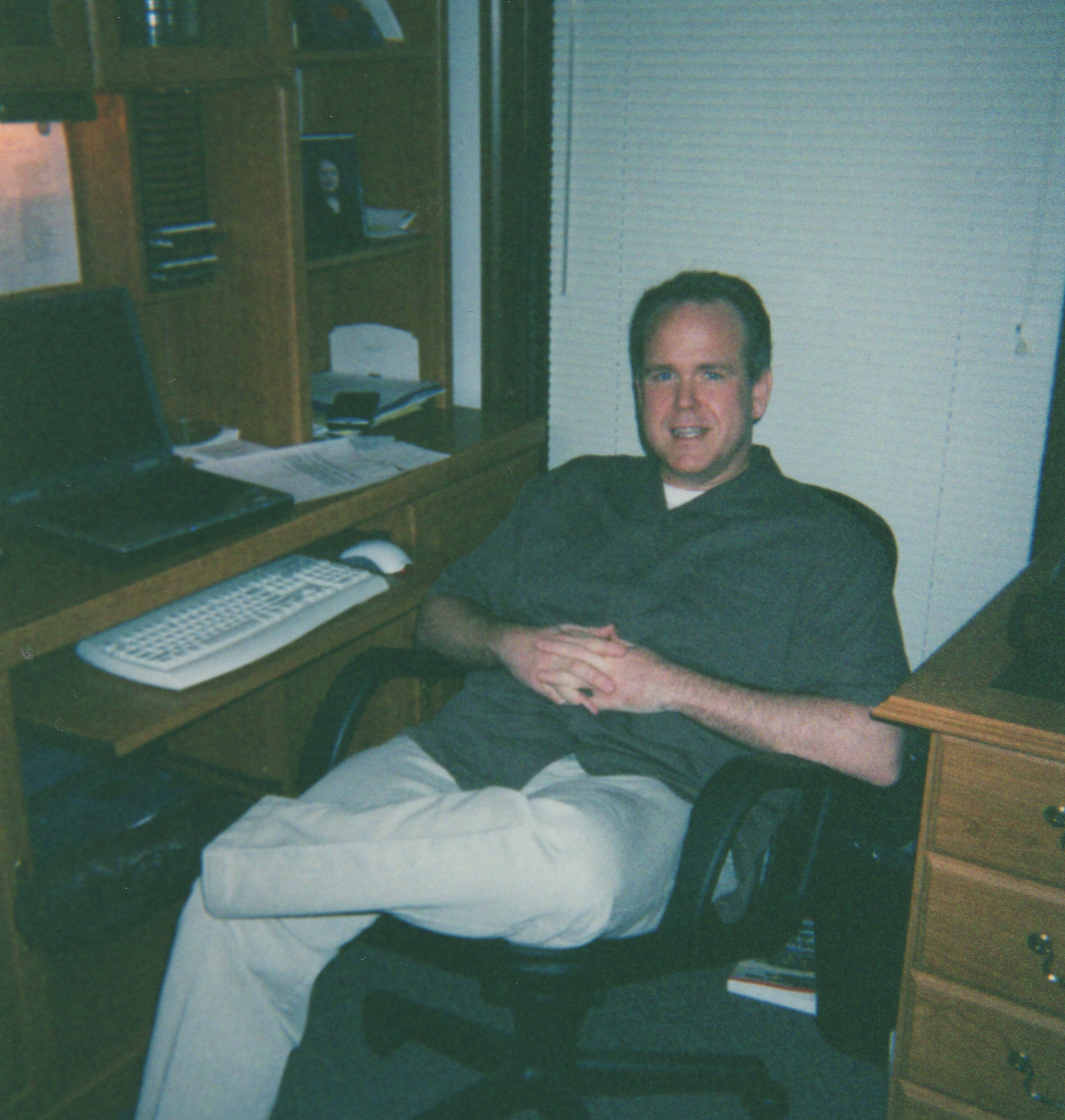
I'd found an office in which to set up my studio, and had hired a friend to build some inexpensive but decent studio furniture from melamine. At this point we were still sending projects out on mini reel tapes via FedEx or Airborne. So I was grateful a mentor of mine had gifted me an older reel-to-reel in great shape. For years we'd wondered what would finally replace them: CDs? Mini-discs? One of the dozen or so different data backup formats that were coming out? Nope. It was the MP3 and the burgeoning internet that would do the trick together. It wasn't long before everyone was accepting these digital transmissions. This was an important innovation, making mobile recording and having a location-independent voiceover business much more feasible!
Focus
For around six years I was doing it all: voiceovers, creative, production, media-buying—even emceeing lots of local events. But in 2004 I experienced a profound awakening that I'll write about in detail later. It was an awareness that the foundation on which I'd built my life was not real, and it threw me for a loop. I didn't get a lot of sleep, and I was trying to gather my thoughts and memories, putting them down in writing. As difficult as it all was, over many months I came to see I was being gently guided by my own thirst for freedom. And while this waking had nothing to do with my work, it started to hit me I just wasn't cut out for a life of neckties and client meetings. I needed to focus on voice overs, which I wouldn't do for awhile.
I got involved with a company that hired me as a group presenter on weekends. This was a blast since they were flying me out to cities all over the country. There were lots of fun, hilarious, even bizarre people who were part of the operation; hell, I almost married one. But while the money wasn't too bad for weekends only, I now realize the attraction was in the escape this gig provided.
There's just something about rocketing from coast to coast. Drinking on the plane. Putting on your show. Drinking in the hotel. Bashing into a new city. Drinking in their bars. Meeting and playing with fun and interesting new people. It's true I was finding myself, but I was also traveling a lot, which after awhile helped me see I could live anywhere. So I moved to southern California, then later Arizona. And the fact that I was able to continue my voice overs and ditch that client hand-holding work? Beautiful.
Two or three years of this life probably should have been enough, but some of us got seriously addicted to it. Yes, it was wicked fun for awhile—and honestly it never really stopped being fun—but it was no excuse for a life. And the fact is when I was finally done with it, (after SEVEN years,) it wasn't long before my voice business started really taking off. What had I been doing all that time?! Fucking around, constantly flying here and there, practically living in hotels, drinking like a sailor, hanging out with morally questionable people… Jesus it's suddenly sounding good again. But that's beside the point.
What strikes me now is that 7 years was kind of like a Vision Quest. I wasn't really living with a strong, self-directed purpose, but instead letting myself move downstream, sliding through a kind of spiritual water slide and taking note as certain grooves seemed to fit my ass really well. So it was a healthy experience, but at the end of it…it was time to get more serious about that focus.
International Intentions
My voice over income was always greater than my weekend income, but for some reason I thought I needed those twice-monthly paychecks coming in. Reality? After a year of settling in, calming down, getting it together and beginning to audition more, I more than surpassed what I was making with that extra weekend work. Plus I lost 15 pounds in three months—just from subtracting all that airplane and hotel food. But if the aforementioned 7 year drunk was actually a Vision Quest, what insight did it get me?
At 45 I really began trying to envision what exactly I wanted my life to be like. I dug San Diego; maybe I should move there? Well I'd already experienced why CEO Magazine named California, "the Venezuela of North America." Ridiculous taxes, regulations, stupid formalities. Fuck that; I'll visit San Diego when I want. But hey. Maybe finding a place where conditions were really favorable to running a business, where I could keep more of what I earn instead of shelling out half to a monstrously bloated political bureaucracy that often uses it to drop bombs on third-world countries for manufactured reasons…maybe I should look outside the US?
Lots of places in Asia looked sweet, but there were two problems. One, I hate humidity. Two, with most of my clients being in the US, I'd often be recording via phone or internet at 3 am. Not happening; I needed to keep it in a comfortable Time Zone. Also, if I was going to learn a new language I preferred to improve upon my shitty Spanish rather than start with a new one.
So in January 2013 I spent 3 weeks in Chile, which is a really bright spot. All the financial freedom indices place it, not only way above any other Latin American country, but generally in the top ten in the world. I met great, enterprising young folks down there, hanging out in Santiago, Curacavi, Viña del Mar, Valparaiso and Reñaca. But there was one more spot I'd been reading about that I thought I'd better see for myself.
¡Órale!
I'd been examining a lot of articles by Jim Karger, a noted US labor attorney who moved to San Miguel de Allende, Mexico around 15 years ago. The first thing that attracted me was his description of the weather. It's funny: no matter how many times I tell friends I'm in the high-desert mountains of Central Mexico, they'll still ask, "Close to the beach then?" (sigh) This is not quite the Mexico of your resort vacations. In no month is the average high temperature above 84 nor below 73. Nine months each year the nighttime lows hit mid 50s to low 60s, and in the Winter months it'll dip down into the 40s and sometimes high 30s. At an altitude of around 6500 feet above sea level, it offers a comfortably low humidity.
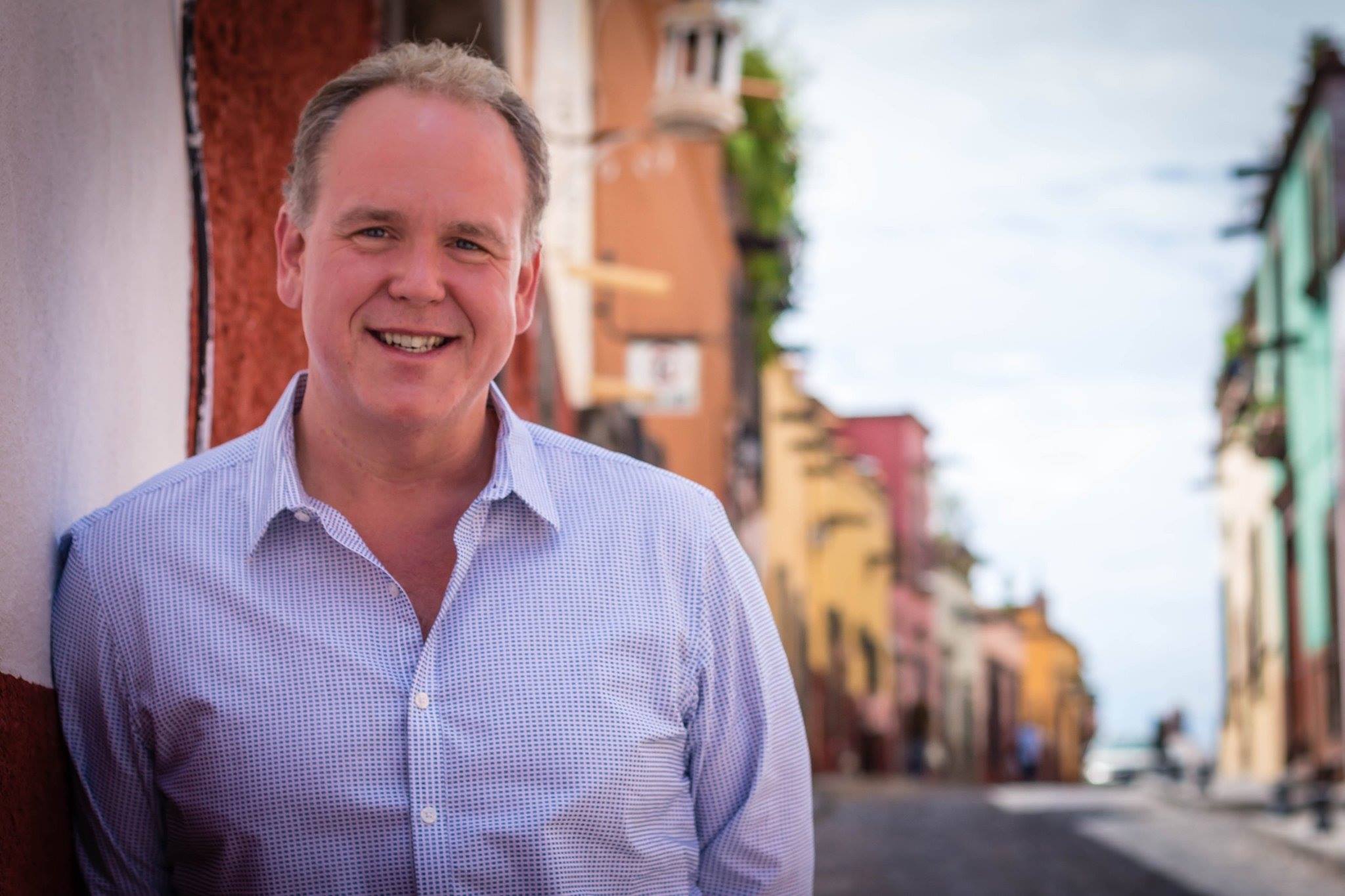
The next attraction was when I actually visited and saw it for myself in June of 2013: a gorgeous, bustling Colonial town that was what I imagined Spain looked like 300 years ago. Narrow cobble-stone streets, a gorgeous jardin in centro where the town comes to relax, smile, eat and drink. And because of the large expat population, there is a shocking array of great bars, restaurants, nightclubs and art galleries. If there was any measurable cultural tension I couldn't detect it. As Karger noted, US, Canadian and European immigrants have been living here since the 1940s; so no one can remember a time when Mexicans and non-Mexicans weren't living, working and enjoying this cool town together.
So that was it: I'd move to San Miguel de Allende, rent someplace where there'd be room for my studio, and just start building a fun, cool life while focusing ever more on my voiceovers. If I liked it, after awhile maybe I'd buy a house and settle in long-term.
It worked.
After a year and a half I was loving my life. While there's a bit of a premium living here compared to many parts of Mexico, I was still saving money at a rate I'd previously never imagined because of the lower cost-of-living and tax benefits. I'd also met a magnificent, beautiful Mexicana, and we were having a blast and becoming closer. There was about half an acre of land in the country that offered stunning mountain views, so I snapped it up and began working with my friend, Philip, a long-time architect and builder. The master plan includes our 2-story house, 2 rental casitas and an aquaponics greenhouse.
My studio will feature a vaulted ceiling, an outer room of more than 6 inches of poured concrete and an inner room—with a 21 inch air gap in between. Philip wants that gap because it leaves us room to change wiring and stuff in the future; 21 inches being enough for the average Mexican construction worker to move around in if necessary. George Whittam, Director of Technology at Edge Studio, whom we had a Skype consult with, was stunned when we told him about the gap. He said he'd never heard of anyone with the luxury of including one of more than a few inches, but that the bigger the gap the quieter the studio. So, recognizing Mexicans like to party with fireworks in this town, I'm hoping for a veritable sound fortress!
Do I enjoy being a voice actor? I do. But what I really dig is that it's helped me build a life of advantages. I get to work from home in a place where living costs are drastically less, the lifestyle is more to my liking, where I'll be growing much of my own food, with a built-in rental income as I eventually head into retirement. We start construction in January 2017.
Confluence
So it all started with an exacting mom, some great teachers, discovering a bit of natural ability and deciding I could make a really great life out of being a voice actor. I could talk about all the funny twists and turns as if they were some mystical guidance, and honestly it does seem that way to me. But I've decided none of those little things along my path would have meant a thing without my believing I could do something with them. And I sincerely don't know why I did. For some reason, and with no substantive way of being certain, I believed people would pay me to talk into a microphone. And although I've been phenomenally wrong about so very many things, it looks like I got this one right.
I'm convinced we live during a time when it will pay to stop looking to the institutions, employers and other segments of "the establishment" to shape our lives. They just aren't what they used to be. And while I know there's fear in leaving an employer with the usual benefits, I invite you to reconsider. As I write this, I can report that in the first 11 months of 2016 I've billed 76 different clients. What's more devastating? Losing your only employer? Or just one of 76? The way I see it limiting yourself to only one employer is far riskier long-term than starting your own business and having lots of them.
Health care? Look, if you've any inkling you'd like to live outside the US, understand that it's likely to be drastically less expensive anywhere else you go, and getting high quality medical care is just not as difficult as you think. Cost of living? Let me let you in on something. This house I'm building? Except for Phase 2, (the rental casitas,) it will be paid for when I move in—with money I've saved from living here just the last few years. And understand I didn't even start saving in earnest until about 9 months ago. This is not something I could have imagined before moving to Mexico.
Think of all those farmers, miners and factory workers 60 years ago. Let's agree that a bunch of them were happy with their lives; fine. For the many who weren't, imagine how outrageous it would sound to learn of a time when you could choose your own work schedule, in a field to which you're uniquely suited, in some part of the world ideal for you, with a potential only limited by your own imagination. Then imagine hearing such a thing were readily available…but many weren't seizing it.
The time we're living through is an amazing confluence of 1) a major economic shift, and 2) jaw-dropping technological resources. I'm not trying to shame you for not already having done something about it; I just want to make sure you've fully realized the advantages of this age. I made just about every mistake you can think of in trying to build this voice acting career: letting myself get sidetracked for long periods, being minimally ambitious, limiting myself mentally. The only thing I can lay claim to is, again, a persistent belief that I could pull it off. Imagine what you could do with that belief—and just a little less screwing around.
Becoming a working voice actor can be a cool thing. But that's nothing compared to the potential for freedom it brings and the uniquely engineered life it can fuel. Come get it.
